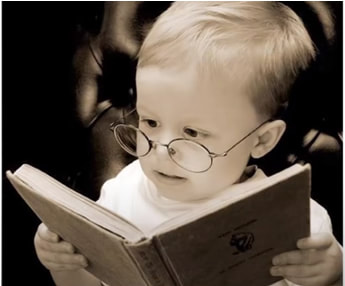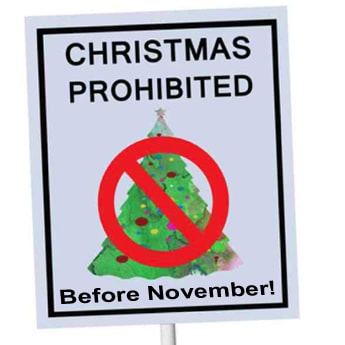Bring out the UK Government’s answer: change all the advice and guidelines… again!!! Don’t you just love them…so here’s a quick overview of the “new school rules”.
New guidance for school children who are contacts of Covid-19 cases:
As of now children are no longer required to self-isolate if they live in the same household as someone with Covid-19, or are a close contact of someone with Covid-19, if any of the following apply:
- they are fully vaccinated
- they are below the age of 18 years and 6 months (18 ½ years old)
- they have taken part in or are currently part of an approved Covid-19 vaccine trial
- they are not able to get vaccinated for medical reasons
So basically, all children at school will fall into the “less than 18 ½ years old” group and will no longer need to self-isolate. No more missing school! GREAT!!
Instead, children (or their parents) will be contacted by NHS Test and Trace (we are still all paying for it so the Government needs to keep using it…cynic!), informed their child has been in close contact with a positive case and advised to get the child to take a PCR test. The UK Government “encourage” all individuals to take a PCR test if advised to do so… but this appears to mean that it is now no longer mandatory. Oh! And hooray, face coverings are no longer “advised”… let’s hope we can actually ditch them as I believe they hamper teaching and communication… (have you noticed more people seem to be “opting” to wear a face mask now they are not mandatory… we are a contrary nation!)
Are schools a hot bed of Covid-19?
At the beginning of the pandemic, children were blamed for spreading Covid-19 amongst each other, “infecting teachers with plague” and then taking it back to their families. It was claimed that schools were a major source of cross infection between households, but it appears that that hasn’t really been the case after all.
The UK Government quote figures of attack rates for a number of situations where someone has come into contact with a case of Covid-19. The attack rate is the % number of new cases of Covid-19 due to contact with an infected person; the higher the number the higher the risk:
- Primary school 0.84%
- Secondary school 1.2-1.9%
- Social contact outside of school 5.9%
- Household contact 21%
These figures suggest that school transmission is NOT the major source of spread of Covid-19, but rather that “social” and “household contact” IS the main source… However they don’t show how these figures were calculated, so I’d suggest caution, as statistics are easy to manipulate to show whatever you want them to show!
So, children going to school isn’t going to cause mass spread of the infection but do they get sick and die from the infection? Are we putting them at risk?
Do children die from Covid-19?
The simple answer to this rather disturbing question is YES… but it isn’t common. The overall mortality rate in children under 18 years old is about 1 in 500,000 and that is very low, apparently you are just as likely to die while bungee jumping. In the over 80s it is about 15% (that’s dying of Covid-19 not bungee jumping!) BUT 1 in 500,000 isn’t zero, and it’s important to remember that although the RISK is very low the CONSEQUENCE is absolute… at the end of the Covid-19 infection the child is either 100% alive OR 100% dead … not 1 in 500,000 parts dead. Please excuse the apparent callousness of that statement but it’s a really important concept that often gets lost when considering “outcomes of disease”; percentages can be misleading, things either “fully happen” or they “fully don’t happen”, death doesn’t partially happen.
So, reassuringly children going back to school are at very low risk of dying from Covid-19, Phew! BUT is there anything else other than severity of Covid-19 we need to take into account? What about long Covid?
Long Covid-19 in children
Do children suffer from long Covid? This is a really important question as up until now all we keep hearing is that severe Covid-19 in children is rare, but what about the less severe but equally debilitating long-term effects that might impact school attendance, disrupt physical activity and damage mental health. Surely in kids, these are just as important as severe infections, added to this, we know that in adults long Covid can happen whether you have a severe infection or no initial symptoms at all.
A large study from the UK, published in the Lancet, looked at 1743 children who tested positive for SARS CoV2 to see what symptoms they had and how long those symptoms lasted. The children (or their parents) reported symptoms via an online app. The study showed that only 1.8% of children with Covid-19 had symptoms that lasted up to 56 days, compared to the control group where 0.9% of children who hadn’t had Covid-19 but who reported feeling unwell (unsurprisingly, kids were still getting kids illnesses last year). The main symptoms of the Covid-19 group were fatigue and headache. So, in this study the “excess burden” of prolonged symptoms due to Covid-19 in children was only an additional 0.9% compared to “other children experiencing illnesses”.
Another study from Zurich, Switzerland, has also looked at the burden of prolonged symptoms in children following Covid-19. The Swiss team looked at 1355 children who had a serology sample taken between October and November 2020 and asked them questions about symptoms compatible with long Covid. They then tested the serum from these children to look for antibodies against SARS CoV2 which would indicate they had been infected in the past. This identified 109 children who had had Covid-19 and 1246 who had not. 4% of the Covid-19 children had symptoms lasting longer than 12 weeks compared to 2% of the children who, although had symptoms lasting longer than 12 weeks, had not had Covid-19 at all. The most common symptoms in the Covid-19 group were tiredness (3%), difficulty concentrating (2%) and increased need for sleep (2%). The Swiss team concluded that long Covid in children is uncommon, giving only a 2% increase in symptoms after 12 weeks.
A further, yet smaller study, from Australia showed no prolonged symptoms following Covid-19 in children at all. This would support the findings of the somewhat larger studies above; if something is so low then small studies won’t usually pick it up.
Results from the small number of other studies I have been able to find on this subject suggest long Covid symptoms in children are uncommon, up to about 2% perhaps. All of the studies are limited by the small numbers of children in the studies and so are all prone to bias and skewing of their data e.g. if you ask for people to report long Covid symptoms you are more likely to get responses from people with symptoms than without symptoms which will lead to higher apparent case numbers e.g. if you have 50 people in a study and 10 say they have symptoms this would be 20% even though it is possibly only 10 people out of the whole population. However, the studies all seem to suggest the same low rates of long Covid in children and that is reassuring.
So, what do I think? Am I in favour of the more relaxed rules around children going back to school?
Yes, I am in favour of a more relaxed approach to the return to school. I think the risk of severe disease in children is extremely low and the risk of long Covid is also very low. I think the risks associated with children missing school are considerable. And it’s not just the missing education that worries me; more importantly the lack of social interaction, play and physical activity can have very serious impacts on how children develop, not to mention that school meals are sometimes the main meal of the day for some children. And yes, as someone who is a product of the comprehensive school system in the UK, I think learning is important as well.
I just think we should be aware that there may be a risk with the more relaxed system, and we should keep an eye on what is happening, whether children are getting sick, or case rates are going up or long Covid in children is becoming more common, and we shouldn’t be afraid to change our minds if it’s all going wrong. One thing is for sure we all now know we need to wash our hands much more frequently! Maybe this generation will be top of the class on that lesson!
Now, I’m off to the shops to look for a new pencil case, some gym pumps and a satchel… yippee, back to school!!!! Don’t forget to sticky-back plastic your exercise books!!




 RSS Feed
RSS Feed
